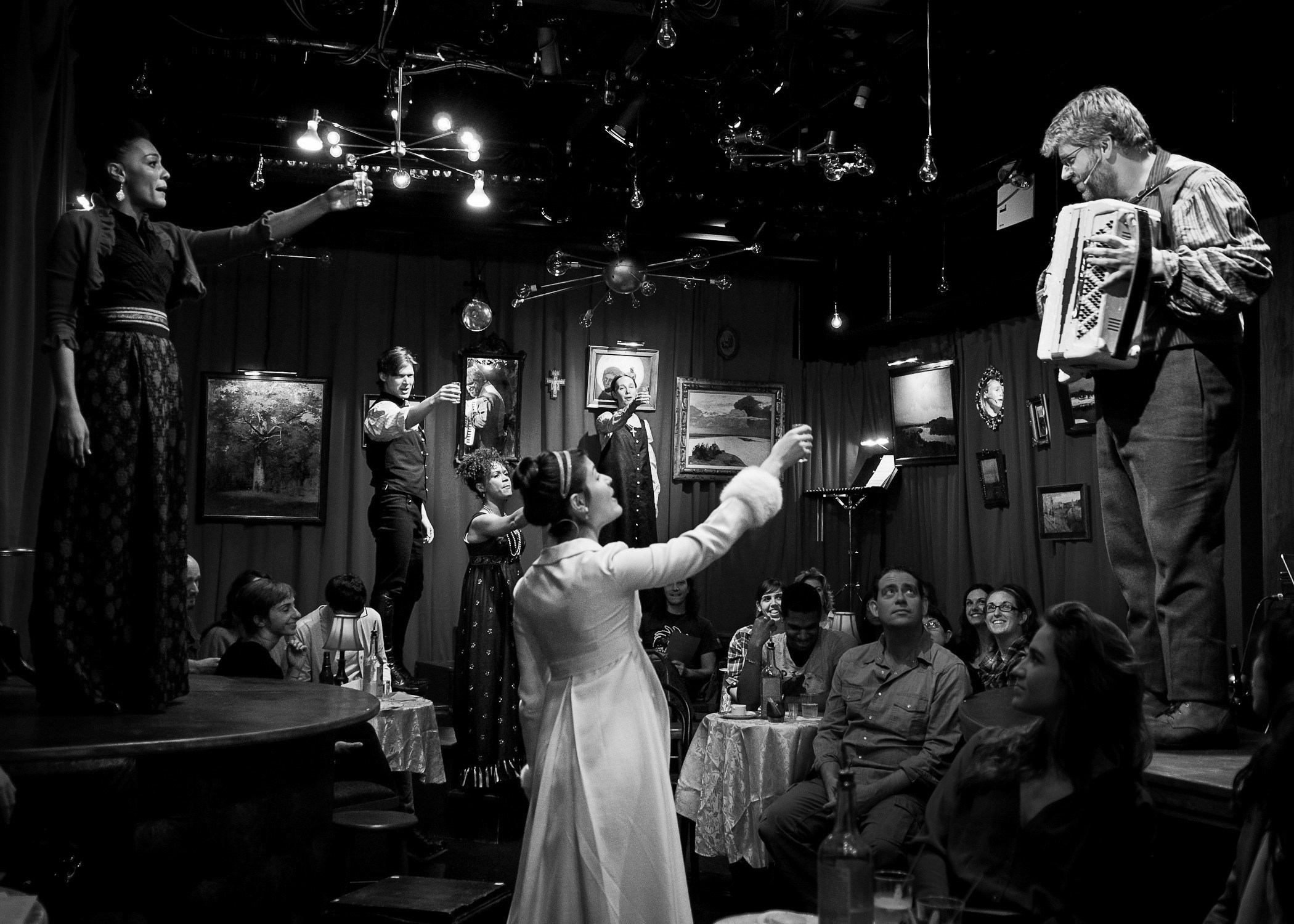Telling Stories About Women: A Trip to a Women's Theatre Festival

On the first day of July, I went to OccupyCon - a 24 hour convention featuring play readings and various theatrical activities headed by the North Carolina Women's Theatre Festival (wonderfully abbreviated to WTF). As a North Carolina native, and a woman in theatre myself, it felt only natural to attend even if only for a few hours when my best friend was present and performing.
All of the play readings at the festival had to fall under three conditions:
The playwright had to identify as female or nonbinary.
The cast had to be at least 50% female.
At least 50% of the characters had to be open to actors of color.
While I was present, I saw two full play readings, six 10 minute plays, and the tail end of two full length plays. Considering this was only a small fraction of the 24 hours, it was quite a lot to take in...and yet, it was wonderful.
My goal as a theatre maker is to tell stories about women. I acknowledge that this is incredibly vague, but that vagueness allows me to fit in a great deal. Going to OccupyCon showed me just how stories about women by women are vital and different than what often ends up on major stages.
As one would expect, there was a strong focus on motherhood. Women talked about fertility and their lack of it, miscarriages, breast milk, abortions. These stories were vulnerable and resonant, coming from a place of truth because they spoke of a distinctly female experience.
There was also a push for diversity. One play, All Together Now by Ashley Popio took female Shakespearean characters and put them together in a "swashbuckling lesbian adventure." Two plays featured a trans character played by a trans actress. And my favorite play I saw, Lawnpeople by Natalia Temesgen, was about a Mexican woman who had immigrated to the United States and worked for a black couple.
This is what I saw in my short time at the convention. The entire convention was only twenty four hours.
Now, imagine just how many stories about women are just waiting to be told, waiting for something like OccupyCon to let it breathe.
In my program from the event, there was a diagram illustrating that approximately 75% of plays produced were by men, with only around 25% by women. Now, if you break down those numbers further, the story becomes more stark when it comes to writers of color or revivals of plays.
If you think about the most famous plays, chances are you're thinking about a male playwright. Shakespeare, for one. Writers like Tennessee Williams and Arthur Miller. Probably the most renowned playwright of today is Tony Kushner (for good reason - he's certainly one of my favorites).
But female playwrights have been around for quite a long time - for instance, Aphra Behn was the first professional female playwright back during the 17th century. There is no shortage of female playwrights and their plays, but there is a shortage of productions for these works. It's past time for theatres to make a distinct effort to produce plays that aren't just by straight white men. (Young Jean Lee's Straight White Men coming to Broadway is a promising step in the right direction, though.)
If you're looking for some plays by women to read and support, here are some of my favorites:
Hookman by Lauren Yee: A slasher existential comedy where a college freshman's grief intertwines with the sinister presence of a serial killer on campus.
The Death of Hayden Waverly by Lauren Wimmer: A dark comedy about finding true friendship in an increasingly mediated and confusing world, woven in with how we must deal with our mortality. (It's pretty new, so you can't find the script yet...but keep an eye out, both for this play and its playwright.)
Heroes and Saints by Cherríe Moraga: The story of Chicano workers in the San Joaquin Valley suffering from environmental racism raised to epic proportions.
Machinal by Sophie Treadwell: Now, this one is historical! A 1928 Expressionist examination of a woman living in a cold, cruel world, detailing her decision to murder her husband.
Lawnpeople by Natalia Temesgen: The story of a Mexican immigrant trying to make a life in America after leaving her daughter behind.
The Baltimore Waltz by Paula Vogel: An AIDS play that isn't explicity about AIDS, written as a way for Vogel to grieve for her brother.
The Wolves by Sarah DeLappe: A soccer team made of teenage girls known only by their jersey numbers yet still fiercely individuals, growing into young women through practices and games.
Mr. Burns, a Post-Electric Play by Anne Washburn: A post-apocalyptic play that digs into the heart of the human need for storytelling in surprising ways.
Those are just a few places to start. If you want to discover and support up and coming female playwrights outside of my list, here's my advice.
Make a New Play Exchange account for as little as $7 for unlimited play reading.
Start searching for plays, using the "Filter" feature on the right to search for only female playwrights. (Or go even further - look for playwrights of color, LGBT+ playwrights, etc.)
Find a fantastic new play to read.
Share your thoughts with the world!
Going to OccupyCon was a wonderful experience in its own right. But it reminded me about how vital it is to give diverse voices a place to be heard, pushing for change by deliberately creating that space. I believe that the Theatrical Board is just one of those spaces. Maybe now we can make even more.
(Picture of North Carolina's Women's Theatre Festival Logo)




